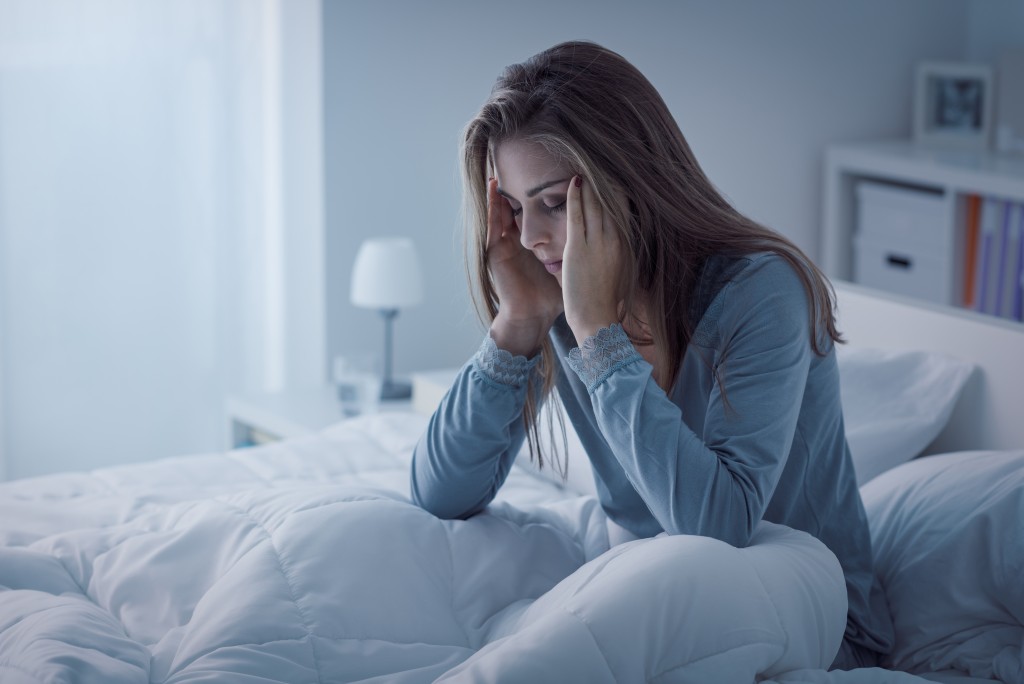Sleep refers to a state where the nervous system temporarily becomes inactive, suspending all conscious awareness.
What Triggers Sleep?
When darkness falls, the SCN or the body’s internal clock sends signals to the pineal gland that it’s bedtime. It then releases melatonin, the sleep hormone. That’s when you find yourself yawning and fall asleep soon after. You might ask, what triggers sleep after eating then? Protein and carbs are rich in tryptophan, an amino acid that releases serotonin. And the said hormone is known to induce sleep.
What Are the Benefits of Quality Sleep?
Healthy heart. Sleep deprivation leads to weak blood vessels, which increase the risk of heart attack and other cardiovascular diseases.
Prevents cancer. Not getting sleep decreases the production of melatonin that protects against cancer.
Reduces stress. Sleep deficiency naturally puts your body on high alert, increasing the amount of stress hormone.
Promotes cell regeneration. Your body produces more protein while you’re asleep, allowing cells to regenerate and repair the damage.
Improves memory. While your brain’s motor function is inactive, the other regions are busy processing and linking information, enhancing your memory.
Here’s how you can sleep just like those models on foam mattress store commercials.
1. Morning sunlight
Exposing yourself to the sun improves your circadian rhythm. It works by suppressing melatonin during the daytime, maximizing its use at nighttime.
In fact, it’s proven to increase the quality of sleep by two hours and reduces the time it takes to sleep by 83 percent. So kick-start your day with a healthy dose of sunlight and sleep better at night.
2. Caffeine
“Coffee keeps me going in the morning.” Does that sound like you? Indeed, caffeine is a great energy booster. It’s consumed by 90 percent of people worldwide. A good dose of caffeine is fine, but too much of it can have negative effects on your sleeping pattern.
It stimulates your adrenaline gland, or the fight or flight response, triggering chemical reactions that put your body on high alert. That’s why you feel awake and energetic.
But if its effects don’t subside before bedtime, no amount of calming oil can make you fall asleep. Remember to drink caffeine moderately and avoid its consumption later in the day.
3. Fewer daytime naps
Daytime naps are inevitable. You can even fall asleep right after you wake up. But studies show that daytime naps interfere with sleep because it confuses the circadian rhythm. So to avoid sleeping problems, try minimizing your naps in the morning.
4. Hot tub
A warm bath before bedtime promotes better sleep. Warm water soothes your muscles, inducing sleep. Studies show that it also contains fewer molecules creating a sense of weightlessness that makes you feel sleepy.
Two hours before bedtime, take a warm bath. Try adding a few drops of essential oil, as it contains calming properties. Not only will you sleep better but also feel rejuvenated when you wake up in the morning.
5. Herbal drinks
The following herbal drinks can help improve your sleep:
Tart Cherry Juice. This drink contains a high amount of melatonin. One glass a day can significantly reduce insomnia.
Coconut Water. Rich in potassium and magnesium that regulates stress and soothes muscles.
Chamomile Tea. Widely known as a natural tranquilizer. This herb contains apigenin, which binds to the GABA receptor in the brain, inducing sleep.
Almond Milk. Almond is rich in magnesium, while milk is rich in tryptophan. As mentioned, it stimulates serotonin, a hormone that induces sleep. Combined, they make a fantastic sleeping drink.
Valerian Tea. Has long been used as a natural sedative by native people. This herb reduces stress and anxiety and alleviates insomnia.
Banana Smoothie. It’s also a good source of tryptophan and magnesium.
6. Meditation
This practice reduces internal noise, making you feel calm. Sometimes it’s the voices inside your head that keep you wide awake. To clear your mind, meditate in the morning or before bedtime. Just find a quiet place, then focus on your breathing. If you’re a beginner, look for guided meditation. Doing it daily results in better sleep and mindfulness.
7. Comfortable bed

A bed is designed to provide comfort. If it gives body pain and stiffness that it already disrupts your sleep, you might want to consider getting a new one. Study shows that a soft bed and pillows also enhance sleep.
Quality sleep is essential because it allows your body to recover from a tiring day. Staying up late can be inevitable sometimes. There’s late-night parties, jobs, and family gatherings that we have to deal with. But don’t make it a habit.



